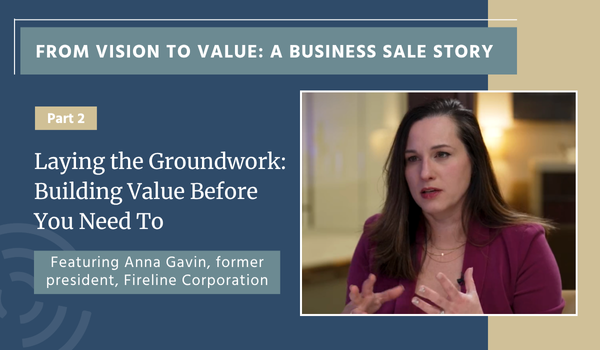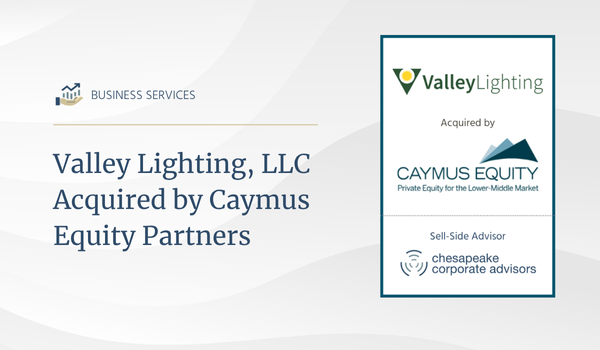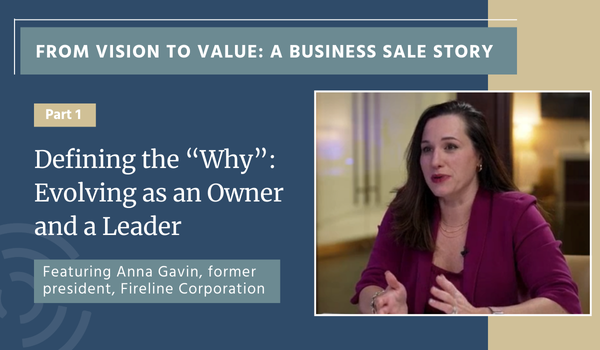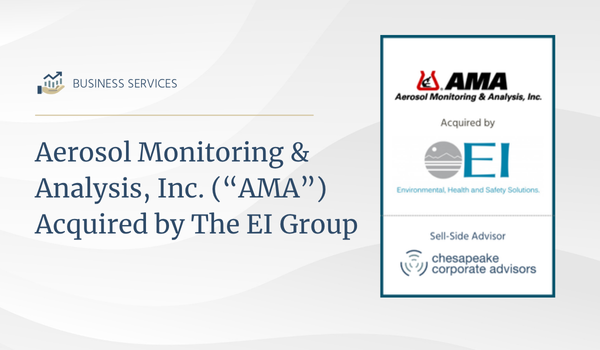As of May 2024, the influx of over $1.3 trillion in growth and buyout private equity (PE) dry powder has fueled a competitive, but crowded, M&A market for high-quality middle market businesses, even amidst inflationary pressures and elevated interest rates. Large PE funds in search of sweet spot deals that would maximize return on investment (ROI), along with pressure to strategically deploy capital are shifting their focus towards the middle market, generally defined as companies with annual revenues of $10 million to $1 billion.
During the height of COVID-19, PE groups primarily made opportunistic investments in companies that were insulated from the pandemic’s negative effects and those that flourished because of pandemic-fueled trends. As conditions have changed, so has the focus of PE groups.
For business owners who are thinking about selling today, it is helpful to understand five factors now driving PE investment in the middle market.
1. Growth Opportunities
PE investors seek to target companies with the potential to grow significantly, whether by expanding into new geographies, tapping into new customers or products, or introducing innovative products and services. Within the middle market, many sectors offer substantial growth opportunities—including companies that provide critical services like healthcare, value-added distribution, and cybersecurity, and those that serve a relatively untapped niche.
PE groups have become more discerning, prioritizing businesses with solid, diversified customer bases, robust cash flows, and proven strategies that capitalize on powerful secular tailwinds. A business boasting a strong management team, a record of sustainable growth, and scalable operations stands out as an ideal candidate for a “platform-build” investment strategy. Growth-oriented PE groups often prioritize acquiring such businesses capable of acting as the parent company or “platform,” adept at executing acquisitions and seamlessly integrating acquired businesses into their operations. This strategic approach aims to accelerate growth, thereby boosting investor returns through the cultivation of a larger entity primed to dominate a particular market space.
2. Market Consolidation Opportunities
Fragmented industries, such as healthcare, industrials, value-added distribution services, and technology and business services, attract PE groups due to the lucrative opportunities to consolidate markets and leverage economies of scale.
Private equity groups will acquire a target business in a fragmented industry and execute “add-on” acquisitions to build scale at a greater pace than the company could achieve organically. This acquisition strategy transforms the target into a platform with greater revenue-generating potential, thereby mitigating the impact of investments and expenses on gross margin while enhancing operational efficiencies, all of which contributes to a higher ROI.
3. Access to Capital for Growth
Partnering with a PE group serves as an additional avenue to generate liquidity or gain access to growth capital and resources that could drive growth at a rate operators would find difficult to achieve on their own. Additionally, at the exit of the investment period, the value of retained ownership increases with debt repayments and equity appreciation resulting from both organic and inorganic growth, making liquidity generated at exit typically more meaningful than the initial sale – an event often referred to as “the second bite of the apple.”
Given the prevailing inflationary and interest rate landscape, numerous middle-market businesses have turned to PE groups as an alternative capital source and strategic partner to mitigate risk, offering a level of accessibility and flexibility surpassing that of traditional debt financing. Armed with over $1.3 trillion in growth and buyout private equity dry powder, these investors stand ready to bridge the gap. Whether the owner is seeking capital to fund substantial growth initiatives, strategic acquisitions, or an equity recapitalization, PE investment emerges as a compelling solution.
4. Value Creation Potential
PE investors always seek to create greater shareholder value, which translates to a higher sale price at the end of the investment period. If a middle market business presents opportunities to reduce costs, increase operational efficiency, optimize processes, grow revenue, and/or improve margins, it will likely be an attractive target for investors.
A PE investor works closely with the management team of the acquired company to determine potential value drivers for the business, then develops and executes value creation strategies that ideally lead to margin expansion and/or higher revenue generation. Whereas an owner’s perspective would be limited to their experiences, PE groups view the company through a broader lens, based on their exposure to other market players and experience with a diverse range of businesses. Their insights enable them to identify value creation opportunities the owner might not recognize, recommend proven approaches to implement value-building strategies, and maximize growth during the investment period.
5. Lack of Succession Planning
Many middle market company owners (particularly in family-owned businesses) find themselves at a crossroads when they near their desired retirement age: They are eager to leave the task of running the business to someone else—and want to see the business continue—but they do not have a natural successor. Most founders tend to focus more of their attention on bringing an idea to fruition, operationalizing it, and growing the business, versus the day they decide to retire/exit.
PE groups are experienced in providing succession solutions that enable middle market business owners to exit the company on their desired timeline, with assurance that their legacy will live on. These investors acquire a majority or full stake in the business, facilitate the transition to a new or expanded management team, and implement strategies to drive growth and sustainability. The transition is most effective when the investor and the business owner share a common vision for the company’s future.
PE investment is only one of the avenues available for selling all or a majority stake in a middle market business. Regardless of your chosen exit strategy or preference for retaining involvement while seeking liquidity, it is vital to partner with an advisor who can adeptly navigate the complexities of the sales process. Entrusting your journey to an investment banking firm with a proven track record of empowering middle market business owners to achieve their objectives, bolstered by extensive industry insight, ensures you are on the path to the most optimal outcome.
If you are thinking about selling your middle market business, contact the investment banking team at Chesapeake Corporate Advisors to schedule an introductory call. We can assess the marketability of your business, determine the most ideal time for a sale, explore alternatives, and support the achievement of an outcome that aligns with your goals.
About Chesapeake Corporate Advisors
Chesapeake Corporate Advisors is a boutique investment banking and corporate advisory firm providing strategic advisory services (value creation) and investment banking services (value realization) to companies with revenues between $10 million and $200 million.





